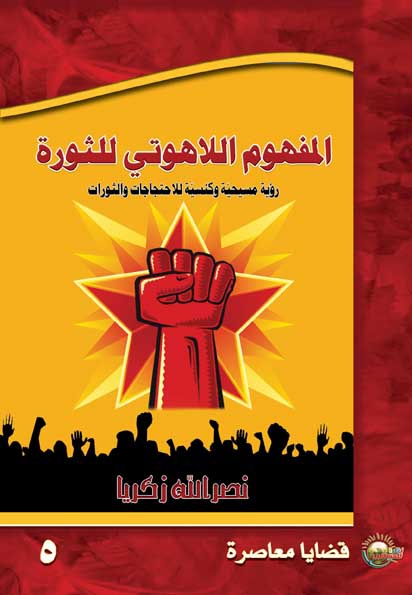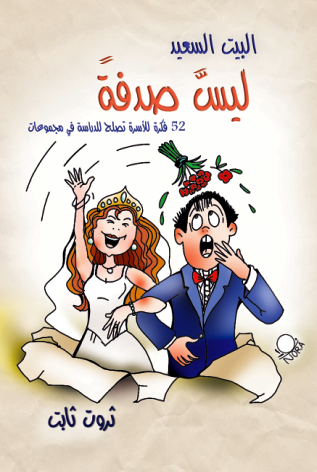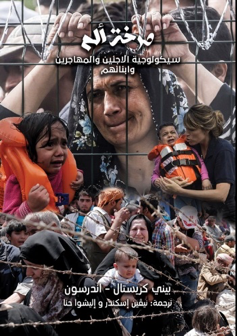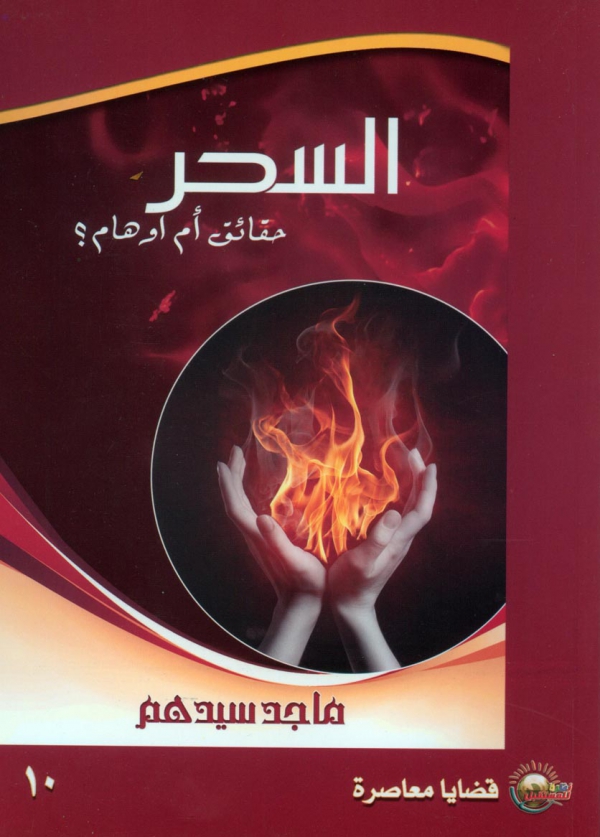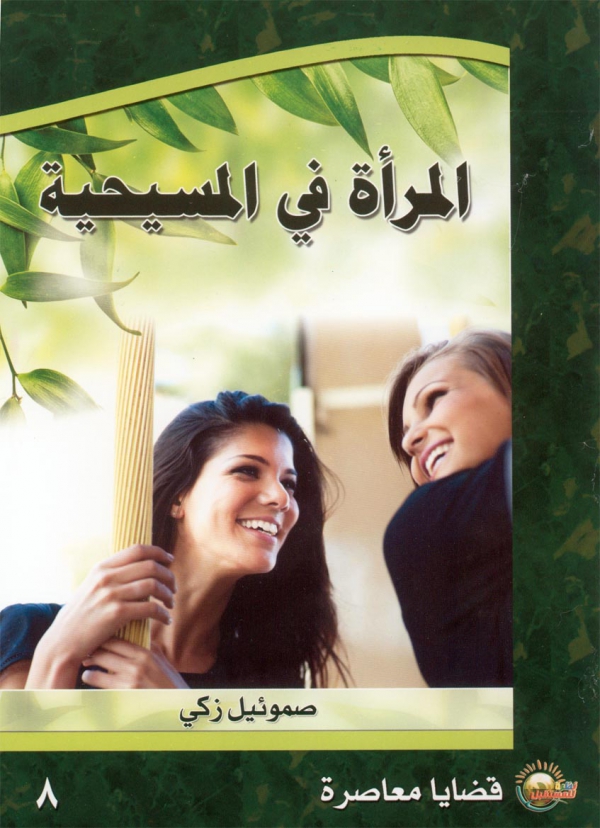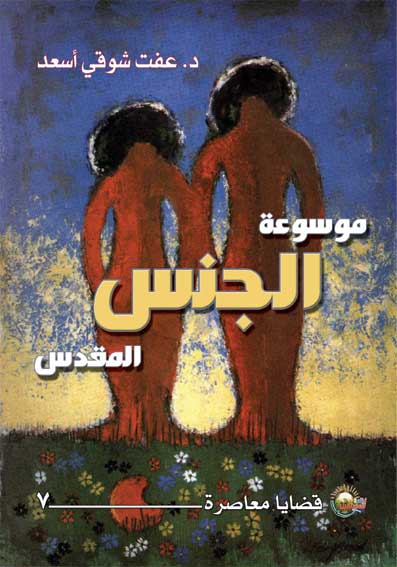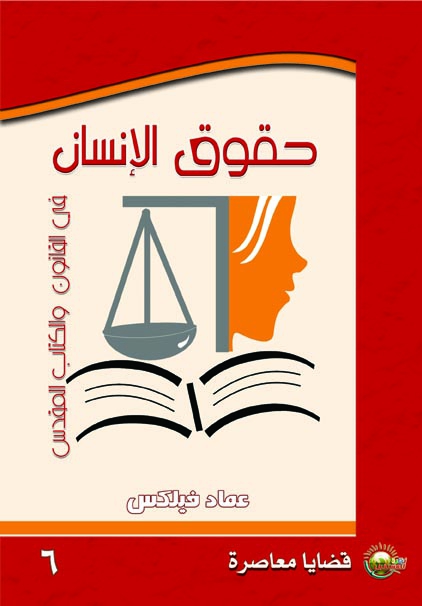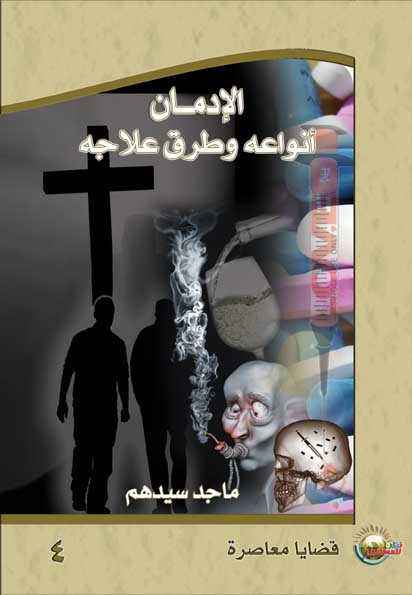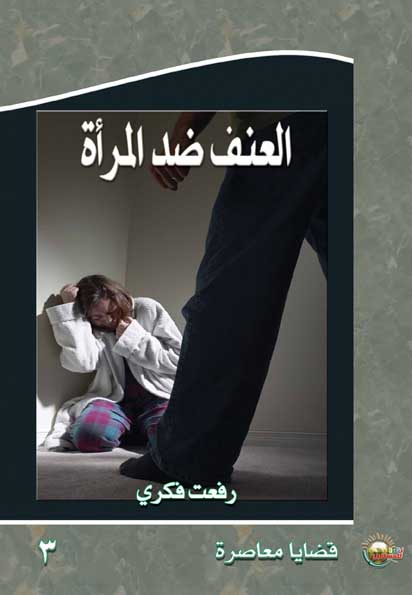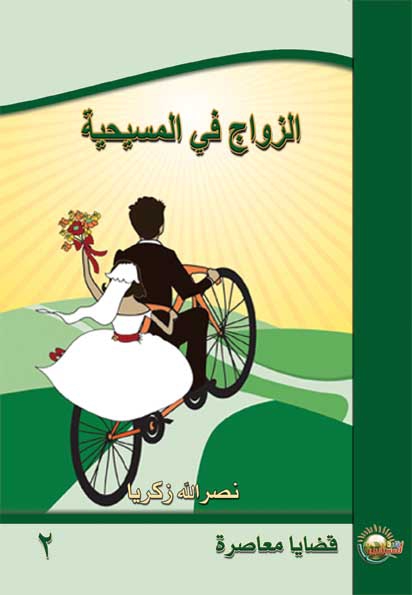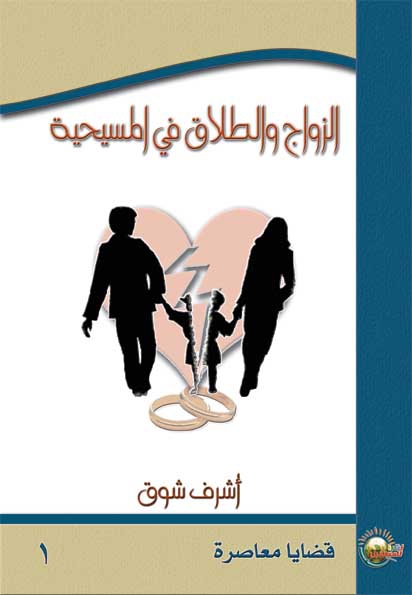Contemporary Issues
The Bible touches on every aspect of our spiritual lives and on our relationships with God. Furthermore, it does not ignore the difficult issues we face in our contemporary lives. It is a book for all times. When we face an issue, we find that the biblical perspective's thinking about it is clarifying. This series deals with contemporary issues (such as divorce, abortion, death and addiction) from a biblical perspective.
A Theological View of Revolution
Author: Rev. Nasrallah Zakaria
Publisher: Vision For Future
In the introduction to "The theological concept of revolutions", a 150-pages book of medium size, the author wonders if people can be lulled into yielding to an unjust governor, or whether they should arise against injustice, helping found justice and remove oppression from their fellow man. Man is created in God's image and in his likeness. Man's basic rights are ensured by international charters and covenants of Human Rights, are they not to be respected by any governor!? Are people to listen only to religious institutions, or should they seek to bring victory for those who are wronged and oppressed? Are these God's commandments? How do we understand the Church's call, when it prevents youth from joining protests, especially, in the light of the great revolutionaries and prophets of the Bible, like Nathan, Elijah, John the Baptist, Jesus Christ himself, Paul, and others? Isn't the church's role confined to guiding and directing people in a spiritual frame? Or has it become an institution working in politics against its nature and call?
This book is written in an attempt to answer these questions. To accomplish this, we cannot help but return to the Bible, and to the history of the church, to discover the answers, and surprisingly, discover that the Bible uses the very same words used in revolutions and in the common upheavals of the past. Moreover, the Biblical call to combat injustice and oppression is very explicit.
Furthermore, Jesus Christ was a revolutionary who was able to change many of the prevailing concepts of his time. His ideas were of a kind of peaceful revolution that changed the history of mankind. Nevertheless, when he was slapped by a soldier during his trial, he did not accept the insult, but rather, objected, saying: "If I have spoken evil, bear witness of the evil: but if well, why do you strike me?" (John 18:23). Jesus was very compassionate and merciful to human frailty and vulnerability, and yet was also a radical in regard to human rights, dignity, and salvation. His is a positive model for revolutionaries.
To begin, the author refers to a few important terms and definitions, including: protest, riot, insurrection, strikes, coup, uprising, and revolution.
Next, the author tackles the following subjects:
First: Protest and revolution in the Bible. In this part, he deals not only with the historical and theological position on protests and revolutions throughout biblical history, but he also presents some biblical terminology in relation to protests and revolutionary movements, while presenting a study of a number of revolutionary characters who took explicitly revolutionary stances in protest movements, and of such revolutions' leadership, who evidenced the word of God at an ideological, sectarian, or moral level.
Second: Protests and revolutions in Christian and ecclesiastical history. Christian history in general, and ecclesiastical denominationalism in particular, records many religious and political protests and upheavals. At times these combine against corruption and various forms of injustice. Attempts at reform usually precede any uprising. The writer displays instances of this in: the Antiochene revolution against Emperor Theodosius, the protestant reformation in Europe, and the youth revolution against the Egyptian Coptic Pope Yousab II.
Third: The theological concept of protest and revolution. These days, our Arabic region witnesses unrest and upheaval that have toppled political regimes. This has driven many, especially Christians, to wonder about a framework for thinking and moving, and whether there are biblical or theological grounds to participate in such events, and contribute to their changing communities. Is it right that they lull in reclusion away from the public battlefield, and let God do whatever He pleases?
Here, the writer refers to three theological and intellectual schools that give varying answers to the questions raised above:
The first school: calls for the severance and complete detachment from society and world affairs, and furthermore, taking a hostile stand against the world and fighting against it.
The second school: does not differ much from the previous school in its call for a separation from the world, however it does not declare war against it, but imparts the message of salvation.
Third school: advocates the importance of assimilating and participating in the community, and the world, moving towards social evolution and better life. Supporters of this school consider believers to be part of the world, saying they should interact with their communities with the aim of change.
"Liberalism" is a trendy slogan nowadays, but it is also an authentic biblical value since the concept of "liberation" is presented as one of its major fundamental topics addressed by the Bible. Therefore, the author tries to provide a biblical and theological reading on protests and revolutions in the following sub-points:
- Christian theology and equality
- Christian Theology and Liberation
- Christian theology and freedom of expression and self-determination
- Citizenship
- The Bible's call for founding justice and resisting injustice and oppression
The Church's position on protests and revolutions:
With regard to the escalating protests and strikes of recent times, leading to demonstrations and revolutions that have overthrown political regimes, the author raises many of questions, including:
- What is the relationship between the state and Church?
- Is the role of the church confined to the spiritual frame? Or should it be involved in political life?
- Does church have the right to express opinions on political issues?
- Does it have to always yield to the governor and the political system?
- Ought a separation between Church and Christian citizens to be, in respect with political affairs?
- Do Christians have the right to practice politics and deal with political issues?
- Does a cleric have the right to participate in the political process and express his views of political issues out of being a citizen? Or does being a cleric oblige one to refrain from expressing his political opinions?
The author has tried to give us adequate and detailed answers to such questions, and in his closing remarks he makes a Call for Participation saying:
"Rights are not granted but taken away by force, and by all available means. This is the route taken by most of the peoples of the earth who have arisen for freedom, democracy and the rule of law."
Ahmed Shawki was right when he wrote: "Demands are not attained by wishful thinking... but by force."
If rights are not granted, then demands will not be obtained by wishful thinking, nor by intellectual and logical speculation and theoretical philosophy. Demands will ever remain mere wishes that lack mechanisms that can turn them into a practical lived-into reality. Involvement (societal, political, economic, etc...) remains the first step on the path toward obtaining demands, and snatching rights.
